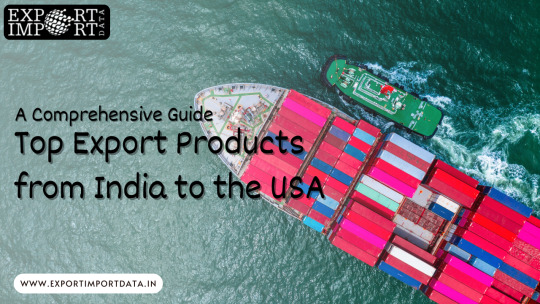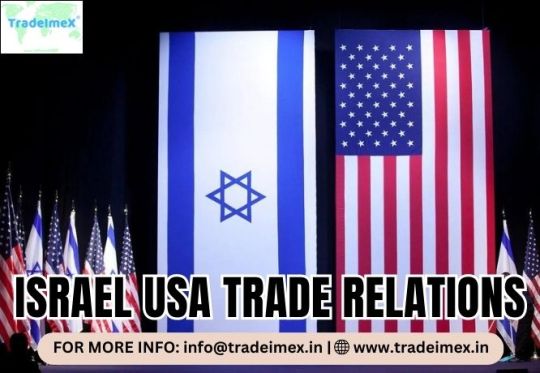#USA importers data
Explore tagged Tumblr posts
Text
Discover the latest trends in U.S. import data, key trade facts, and significant importing partners. Learn how businesses and governments utilize import data to make informed decisions and drive economic growth in 2024.
#US Import Data#USA Import Data#US Custom Import Data#USA Importers Database#Import Data US#USA Importers Data#US Imports Data#US Importer Data#US Importers List#US Importer Database#Find US Buyers Data
0 notes
Text
How can I get USA import data?
Unlock the power of USA import data with Eximpedia - your reliable source for detailed, updated, and affordable information.

0 notes
Text
Folks if you live in America Please call your local senator about the "Kid's online safety act"
The "kid's online safety act" will be a disaster for privacy and free speech online so please encourage heavily for your local Senator to vote against this bill
#america#american#usa#kid's online safety act"#KOSA#stop kosa#privacy#data privacy#online safety#internet#free speech#freedom of speech#first amendment#human rights#american politics#politics#very important#so fucking important#actually important#serious#good posts
17 notes
·
View notes
Text
Top Export Products from India to the USA: A Comprehensive Guide

India and the USA share a robust trade relationship, with Indian exports playing a vital role in this partnership. Over the years, the USA has emerged as one of the largest importers of Indian goods. This article explores the top export products from India to the USA, providing insights into the trade dynamics, key export categories, and their economic significance.
Understanding Export Dynamics Between India and the USA
The USA is one of India’s top trading partners, and trade between the two countries has consistently grown. In 2023, the bilateral trade between India and the USA reached significant heights, driven by the export of high-demand products. Indian exporters leverage the USA’s vast market to provide quality goods across multiple sectors, making it a win-win for both economies.
Top 10 Export Products from India to the USA
India’s exports to the USA encompass a wide range of categories. Below are the top 10 export products from India that dominate the trade landscape:
1. Pharmaceuticals
Indian pharmaceutical products, including generic drugs and over-the-counter medications, are in high demand in the USA. India’s pharma industry, known for its quality and affordability, contributes significantly to American healthcare.
2. Textiles and Apparel
The USA is a key market for Indian textiles and garments. Exported items include cotton fabrics, synthetic textiles, and ready-made garments. India’s rich textile heritage and skilled labor make its products highly competitive.
3. Jewelry and Precious Stones
India is a global leader in the export of gold jewelry, diamonds, and other precious stones. The USA, being one of the largest consumers of luxury goods, is a major destination for these exports.
4. Automobile Components
Indian manufacturers export a wide array of automobile components to the USA, ranging from engine parts to electronic systems. The high-quality and cost-effective nature of Indian components drives their popularity.
5. Machinery and Industrial Equipment
India supplies industrial machinery and equipment, including heavy machinery and electronic appliances, to the USA. These exports cater to industries such as construction, agriculture, and manufacturing.
6. Spices
Indian spices like turmeric, cardamom, and pepper enjoy significant demand in the USA. Known for their quality and authenticity, Indian spices are a staple in American households and food industries.
7. IT and Software Services
Although not a physical product, India’s IT and software services account for a large portion of the export economy. American companies rely heavily on India’s IT expertise for software development, maintenance, and support.
8. Organic Chemicals
Organic chemicals, including dyes, pigments, and intermediates, are a critical export category for India. The USA’s industrial and pharmaceutical sectors depend on these imports for production processes.
9. Leather Products
Leather goods such as shoes, belts, and bags are popular export products from India to the USA. The craftsmanship and durability of Indian leather make it a preferred choice.
10. Handicrafts and Home Decor
Indian handicrafts, rugs, and home decor items hold a unique appeal in the USA. These products reflect India’s rich cultural heritage and are highly valued for their artistry.
Economic Significance of Export Products from India to the USA
Boosting Employment
The export sector generates millions of jobs across India, especially in industries like textiles, jewelry, and IT services. The trade relationship with the USA amplifies these employment opportunities.
Strengthening Bilateral Ties
Exports contribute to the growing economic interdependence between India and the USA. The trade fosters mutual growth and strengthens diplomatic relations.
Enhancing Foreign Exchange Reserves
India’s exports to the USA bring in substantial foreign exchange, supporting the country’s economic stability and growth.
Challenges Faced by Indian Exporters
Stringent Quality Standards
The USA imposes rigorous quality and safety standards for imported goods. Meeting these requirements can be challenging for Indian exporters.
High Competition
Indian products compete with goods from other countries like China, Vietnam, and Bangladesh, making market penetration tougher.
Tariffs and Trade Policies
Fluctuating trade policies and tariffs can impact the profitability of exports. Indian exporters must stay updated on regulatory changes.
Strategies to Enhance Exports to the USA
1. Focus on Quality
Maintaining and enhancing product quality can help Indian exporters meet American standards and build long-term partnerships.
2. Market Research
Understanding consumer preferences and market trends in the USA can help exporters align their products with demand.
3. Leverage Trade Agreements
Exploring bilateral and multilateral trade agreements can reduce tariff barriers and make Indian products more competitive.
4. Digital Marketing and E-commerce
Utilizing online platforms to market and sell products directly to American consumers can expand reach and boost sales.
5. Government Support
Indian exporters can take advantage of government schemes like the Merchandise Exports from India Scheme (MEIS) and subsidies to reduce costs and enhance competitiveness.
Future Trends in Exports to the USA
Sustainability
There is a growing preference for eco-friendly and sustainable products in the USA. Indian exporters focusing on green production methods stand to gain.
Customization
Offering customized products tailored to American consumer preferences can drive demand and create niche markets.
Advanced Technology
Integrating advanced technology in manufacturing and supply chain processes can improve efficiency and meet the evolving expectations of American buyers.
Conclusion
The trade relationship between India and the USA offers immense opportunities for growth and collaboration. By focusing on quality, innovation, and market understanding, Indian exporters can strengthen their position in the American market. The top export products from India to the USA, from pharmaceuticals to IT services, underscore the diversity and strength of India’s export economy. With the right strategies and government support, India’s exports to the USA will continue to flourish, contributing significantly to the nation’s economic prosperity.
#export products from India to USA#top 10 export products from India#top Export Products India to USA#Indian export data#India Import and Export Data#export import data provider#products exports from India#best import export data website in India
0 notes
Text

Explore India's import data for 2023-24, top imported products, and key global trade insights. Learn about high-demand commodities like electronics, gems, heavy machinery, and more. Discover how Seair Exim Solutions provides accurate import-export data to boost your business.
#India Import Data#Import export data india#India exports and imports data#Import from india to USA#most imported products in India#top imports of india
0 notes
Text

Recent years saw a global mushroom trade surge fueled by evolving consumer tastes, health awareness, and food sector growth. India's pivotal role and its mushroom popularity offer lucrative trade opportunities. This blog explores Indian mushroom exports, highlighting market trends. Visit Blog: https://www.seair.co.in/blog/why-is-exporting-indian-mushrooms-a-lucrative-option-for-traders.aspx
#Mushroom Exports from India#mushroom exporters in India#Mushroom export data#mushroom exporters#mushroom exports#mushroom HS code#mushroom market size in India#mushroom export business#mushroom export data from India#Top 10 mushroom exporters in India#mushroom importing countries#Mushroom export data from India to USA#export#import#trade data#import data#international trade#export data#global trade data#custom data#trade market#import export data
0 notes
Link
#bill of lading data of JEFFREY COURT INC#marble importers in USA#marble buyers in USA#natural stone buyers in United States of America#natural stone importers in US
0 notes
Text
International trade is an important part of the US economy, with imports and exports accounting for over 28% of GDP. The US is the world’s largest exporter of goods and services, and the second largest importer of goods.
#USA Export Import Data#USA Exporters Importers Details#USA Buyers Suppliers Details#USA Custom Data#USA Shipment Data
0 notes
Text
USA Import Data
USA Import Data is a collection of information about the goods that are imported into the United States from other countries. It includes details such as the product description, quantity, value, origin, destination, importer, exporter, and transport mode. USA Import Data can be used for various purposes, such as market research, trade analysis, business intelligence, and compliance.

0 notes
Text
USA import export data
Explore comprehensive USA import export data effortlessly with Eximpedia. Our user-friendly platform provides real-time insights, helping businesses make informed decisions. Access detailed information on shipments, trade trends, and market analysis.

0 notes
Text

Empower your business strategy with Seair Exim Solutions, a leading source for USA import data. Access real-time insights, analyze market trends, and make informed decisions to stay ahead in the competitive landscape. Unlock the full potential of the U.S. market with our comprehensive and reliable import data services.
0 notes
Text

URGENT! Stop KOSA!
Hey all, this is BáiYù and Sauce here with something that isn't necessarily SnaccPop related, but it's important nonetheless. For those of you who follow US politics, The Kids Online Safety Act passed the Senate yesterday and is moving forward.
This is bad news for everyone on the internet, even outside of the USA.
What is KOSA?
While it's officially known as "The Kids Online Safety Act," KOSA is an internet censorship masquerading as another "protect the children" bill, much in the same way SESTA/FOSTA claimed that it would stop illegal sex trafficking but instead hurt sex workers and their safety. KOSA was originally introduced by Sen. Edward Markey, D-Mass. and Bill Cassidy, R-La. as a way to update the 1998 Children’s Online Privacy Act, raising the age of consent for data collection to 16 among other things. You can read the original press release of KOSA here, while you can read the full updated text of the bill on the official USA Congress website.
You can read the following articles about KOSA here:
EFF: The Kids Online Safety Act is Still A Huge Danger to Our Rights Online
CyberScoop: Children’s online safety bills clear Senate hurdle despite strong civil liberties pushback
TeenVogue: The Kids Online Safety Act Would Harm LGBTQ+ Youth, Restrict Access to Information and Community
The quick TL;DR:
KOSA authorizes an individual state attorneys general to decide what might harm minors
Websites will likely preemptively remove and ban content to avoid upsetting state attorneys generals (this will likely be topics such as abortion, queerness, feminism, sexual content, and others)
In order for a platform to know which users are minors, they'll require a more invasive age and personal data verification method
Parents will be granted more surveillance tools to see what their children are doing on the web
KOSA is supported by Christofascists and those seeking to harm the LGBTQ+ community
If a website holding personally identifying information and government documents is hacked, that's a major cybersecurity breach waiting to happen
What Does This Mean?
You don't have to look far to see or hear about the violence being done to the neurodivergent and LGBTQ+ communities worldwide, who are oftentimes one and the same. Social media sites censoring discussion of these topics would stand to do even further harm to folks who lack access to local resources to understand themselves and the hardships they face; in addition, the fact that websites would likely store personally identifying information and government documents means the death of any notion of privacy.
Sex workers and those living in certain countries already are at risk of losing their ways of life, living in a reality where their online activities are closely surveilled; if KOSA officially becomes law, this will become a reality for many more people and endanger those at the fringes of society even worse than it already is.
Why This Matters Outside of The USA
I previously mentioned SESTA/FOSTA, which passed and became US law in 2018. This bill enabled many of the anti-adult content attitudes that many popular websites are taking these days as well as the tightening of restrictions laid down by payment processors. Companies and sites hosted in the USA have to follow US laws even if they're accessible worldwide, meaning that folks overseas suffer as well.
What Can You Do?
If you're a US citizen, contact your Senators and tell them that you oppose KOSA. This can be as an email, letter, or phone call that you make to your state Senator.
For resources on how to do so, view the following links:
https://www.badinternetbills.com/#kosa
https://www.stopkosa.com/
https://linktr.ee/stopkosa
If you live outside of the US or cannot vote, the best thing you can do is sign the petition at the Stop KOSA website, alert your US friends about what's happening, and raise some noise.
Above all else, don’t panic. By staying informed by what’s going on, you can prepare for the legal battles ahead.
#stop KOSA#KOSA#censorship#us law#somethings wrong with sunny day jack#the groom of gallagher mansion#dachabo
2K notes
·
View notes
Text
Look, I'm sorry, there's nothing to learn from this post, this is just me complaining about a lack of legibility and expertise available to the amateur.
I wish that international trade data were easier to make sense of. Sometimes you can go to the larger industry groups and get a PDF that breaks down what's moving where and why, but other times the data seems sparse on the ground, or it's just not public-facing, so I'm left with these statistics that don't actually tell me much.
I was looking up potato imports and exports, to win an argument online (of course), and found this in the list of largest import flows:
Imports to Canada from USA (1.52% of the world imports, $92 million according to external trade statistics of Canada)
Imports to USA from Canada (7.4% of the world imports, $447 million according to external trade statistics of USA)
So of the top 10 largest import flows for "potatoes, fresh or chilled", two of those spots are ... USA and Canada sending potatoes back and forth across the border?
Obviously there's got to be some kind of reason for this. The United States and Canada have a long border with each other, so maybe, in spite of friction crossing the border, it actually does make sense for certain parts of the United States to trade their potatoes to Canada, and in other places, for Canada to trade their potatoes to the United States.
Or possibly these are different types of potatoes, with certain kinds suited to growing in Canada and other kinds suited the growing in the United States, and those are what's getting traded across borders.
Or maybe it's the growing season, which is different between the two countries, so that it's a seasonality thing, and the flow of imports depends on the month, which would make sense.
Or the border simply does not provide all that much friction, and so we should expect that they just trade back and forth, because this is as meaningless as trade across arbitrary points within a singular country.
The data seems very scant though, and frustratingly, I feel like there's a potato farmer who just has this information at their fingertips. I am not averse to emailing random farms in Idaho, but I'll exhaust some other avenues first.
Like asking tumblr!
Are you a potato farmer, or do you know one? Can you make sense of the intra-industry trade thing for me with some specific examples of what's going on?
134 notes
·
View notes
Text
Every internet fight is a speech fight

THIS WEEKEND (November 8-10), I'll be in TUCSON, AZ: I'm the GUEST OF HONOR at the TUSCON SCIENCE FICTION CONVENTION.

My latest Locus Magazine column is "Hard (Sovereignty) Cases Make Bad (Internet) Law," an attempt to cut through the knots we tie ourselves in when speech and national sovereignty collide online:
https://locusmag.com/2024/11/cory-doctorow-hard-sovereignty-cases-make-bad-internet-law/
This happens all the time. Indeed, the precipitating incident for my writing this column was someone commenting on the short-lived Brazilian court order blocking Twitter, opining that this was purely a matter of national sovereignty, with no speech dimension.
This is just profoundly wrong. Of course any rules about blocking a communications medium will have a free-speech dimension – how could it not? And of course any dispute relating to globe-spanning medium will have a national sovereignty dimension.
How could it not?
So if every internet fight is a speech fight and a sovereignty fight, which side should we root for? Here's my proposal: we should root for human rights.
In 2013, Edward Snowden revealed that the US government was illegally wiretapping the whole world. They were able to do this because the world is dominated by US-based tech giants and they shipped all their data stateside for processing. These tech giants secretly colluded with the NSA to help them effect this illegal surveillance (the "Prism" program) – and then the NSA stabbed them in the back by running another program ("Upstream") where they spied on the tech giants without their knowledge.
After the Snowden revelations, countries around the world enacted "data localization" rules that required any company doing business within their borders to keep their residents' data on domestic servers. Obviously, this has a human rights dimension: keeping your people's data out of the hands of US spy agencies is an important way to defend their privacy rights. which are crucial to their speech rights (you can't speak freely if you're being spied on).
So when the EU, a largely democratic bloc, enacted data localization rules, they were harnessing national soveriegnty in service to human rights.
But the EU isn't the only place that enacted data-localization rules. Russia did the same thing. Once again, there's a strong national sovereignty case for doing this. Even in the 2010s, the US and Russia were hostile toward one another, and that hostility has only ramped up since. Russia didn't want its data stored on NSA-accessible servers for the same reason the USA wouldn't want all its' people's data stored in GRU-accessible servers.
But Russia has a significantly poorer human rights record than either the EU or the USA (note that none of these are paragons of respect for human rights). Russia's data-localization policy was motivated by a combination of legitimate national sovereignty concerns and the illegitimate desire to conduct domestic surveillance in order to identify and harass, jail, torture and murder dissidents.
When you put it this way, it's obvious that national sovereignty is important, but not as important as human rights, and when they come into conflict, we should side with human rights over sovereignty.
Some more examples: Thailand's lesse majeste rules prohibit criticism of their corrupt monarchy. Foreigners who help Thai people circumvent blocks on reportage of royal corruption are violating Thailand's national sovereignty, but they're upholding human rights:
https://www.vox.com/2020/1/24/21075149/king-thailand-maha-vajiralongkorn-facebook-video-tattoos
Saudi law prohibits criticism of the royal family; when foreigners help Saudi women's rights activists evade these prohibitions, we violate Saudi sovereignty, but uphold human rights:
https://www.bbc.com/news/world-middle-east-55467414
In other words, "sovereignty, yes; but human rights even moreso."
Which brings me back to the precipitating incidents for the Locus column: the arrest of billionaire Telegram owner Pavel Durov in France, and the blocking of billionaire Elon Musk's Twitter in Brazil.
How do we make sense of these? Let's start with Durov. We still don't know exactly why the French government arrested him (legal systems descended from the Napoleonic Code are weird). But the arrest was at least partially motivated by a demand that Telegram conform with a French law requiring businesses to have a domestic agent to receive and act on takedown demands.
Not every takedown demand is good. When a lawyer for the Sackler family demanded that I take down criticism of his mass-murdering clients, that was illegitimate. But there is such a thing as a legitimate takedown: leaked financial information, child sex abuse material, nonconsensual pornography, true threats, etc, are all legitimate targets for takedown orders. Of course, it's not that simple. Even if we broadly agree that this stuff shouldn't be online, we don't necessarily agree whether something fits into one of these categories.
This is true even in categories with the brightest lines, like child sex abuse material:
https://www.theguardian.com/technology/2016/sep/09/facebook-reinstates-napalm-girl-photo
And the other categories are far blurrier, like doxing:
https://www.kenklippenstein.com/p/trump-camp-worked-with-musks-x-to
But just because not every takedown is a just one, it doesn't follow that every takedown is unjust. The idea that companies should have domestic agents in the countries where they operate isn't necessarily oppressive. If people who sell hamburgers from a street-corner have to register a designated contact with a regulator, why not someone who operates a telecoms network with 900m global users?
Of course, requirements to have a domestic contact can also be used as a prelude to human rights abuses. Countries that insist on a domestic rep are also implicitly demanding that the company place one of its employees or agents within reach of its police-force.
Just as data localization can be a way to improve human rights (by keeping data out of the hands of another country's lawless spy agencies) or to erode them (by keeping data within reach of your own country's lawless spy agencies), so can a requirement for a local agent be a way to preserve the rule of law (by establishing a conduit for legitimate takedowns) or a way to subvert it (by giving the government hostages they can use as leverage against companies who stick up for their users' rights).
In the case of Durov and Telegram, these issues are especially muddy. Telegram bills itself as an encrypted messaging app, but that's only sort of true. Telegram does not encrypt its group-chats, and even the encryption in its person-to-person messaging facility is hard to use and of dubious quality.
This is relevant because France – among many other governments – has waged a decades-long war against encrypted messaging, which is a wholly illegitimate goal. There is no way to make an encrypted messaging tool that works against bad guys (identity thieves, stalkers, corporate and foreign spies) but not against good guys (cops with legitimate warrants). Any effort to weaken end-to-end encrypted messaging creates broad, significant danger for every user of the affected service, all over the world. What's more, bans on end-to-end encrypted messaging tools can't stand on their own – they also have to include blocks of much of the useful internet, mandatory spyware on computers and mobile devices, and even more app-store-like control over which software you can install:
https://pluralistic.net/2023/03/05/theyre-still-trying-to-ban-cryptography/
So when the French state seizes Durov's person and demands that he establish the (pretty reasonable) minimum national presence needed to coordinate takedown requests, it can seem like this is a case where national sovereignty and human rights are broadly in accord.
But when you consider that Durov operates a (nominally) encrypted messaging tool that bears some resemblance to the kinds of messaging tools the French state has been trying to sabotage for decades, and continues to rail against, the human rights picture gets rather dim.
That is only slightly mitigated by the fact that Telegram's encryption is suspect, difficult to use, and not applied to the vast majority of the communications it serves. So where do we net out on this? In the Locus column, I sum things up this way:
Telegram should have a mechanism to comply with lawful takedown orders; and
those orders should respect human rights and the rule of law; and
Telegram should not backdoor its encryption, even if
the sovereign French state orders it to do so.
Sovereignty, sure, but human rights even moreso.
What about Musk? As with Durov in France, the Brazilian government demanded that Musk appoint a Brazilian representative to handle official takedown requests. Despite a recent bout of democratic backsliding under the previous regime, Brazil's current government is broadly favorable to human rights. There's no indication that Brazil would use an in-country representative as a hostage, and there's nothing intrinsically wrong with requiring foreign firms doing business in your country to have domestic representatives.
Musk's response was typical: a lawless, arrogant attack on the judge who issued the blocking order, including thinly veiled incitements to violence.
The Brazilian state's response was multi-pronged. There was a national blocking order, and a threat to penalize Brazilians who used VPNs to circumvent the block. Both measures have obvious human rights implications. For one thing, the vast majority of Brazilians who use Twitter are engaged in the legitimate exercise of speech, and they were collateral damage in the dispute between Musk and Brazil.
More serious is the prohibition on VPNs, which represents a broad attack on privacy-enhancing technology with implications far beyond the Twitter matter. Worse still, a VPN ban can only be enforced with extremely invasive network surveillance and blocking orders to app stores and ISPs to restrict access to VPN tools. This is wholly disproportionate and illegitimate.
But that wasn't the only tactic the Brazilian state used. Brazilian corporate law is markedly different from US law, with fewer protections for limited liability for business owners. The Brazilian state claimed the right to fine Musk's other companies for Twitter's failure to comply with orders to nominate a domestic representative. Faced with fines against Spacex and Tesla, Musk caved.
In other words, Brazil had a legitimate national sovereignty interest in ordering Twitter to nominate a domestic agent, and they used a mix of somewhat illegitimate tactics (blocking orders), extremely illegitimate tactics (threats against VPN users) and totally legitimate tactics (fining Musk's other companies) to achieve these goals.
As I put it in the column:
Twitter should have a mechanism to comply with lawful takedown orders; and
those orders should respect human rights and the rule of law; and
banning Twitter is bad for the free speech rights of Twitter users in Brazil; and
banning VPNs is bad for all Brazilian internet users; and
it’s hard to see how a Twitter ban will be effective without bans on VPNs.
There's no such thing as an internet policy fight that isn't about national sovereignty and speech, and when the two collide, we should side with human rights over sovereignty. Sovereignty isn't a good unto itself – it's only a good to the extent that is used to promote human rights.
In other words: "Sovereignty, sure, but human rights even moreso."

If you'd like an essay-formatted version of this post to read or share, here's a link to it on pluralistic.net, my surveillance-free, ad-free, tracker-free blog:
https://pluralistic.net/2024/11/06/brazilian-blowout/#sovereignty-sure-but-human-rights-even-moreso

Image: © Tomas Castelazo, www.tomascastelazo.com (modified) https://commons.wikimedia.org/wiki/File:Border_Wall_at_Tijuana_and_San_Diego_Border.jpg
CC BY-SA 4.0 https://creativecommons.org/licenses/by-sa/4.0/
#speech#free speech#free expression#crypto wars#national sovereignty#elon musk#twitter#blocking orders#pavel durov#telegram#lawful interception#snowden#data localization#russia#brazil#france#cybercrime treaty#bernstein#eff#malcolm turnbull#chat control
118 notes
·
View notes